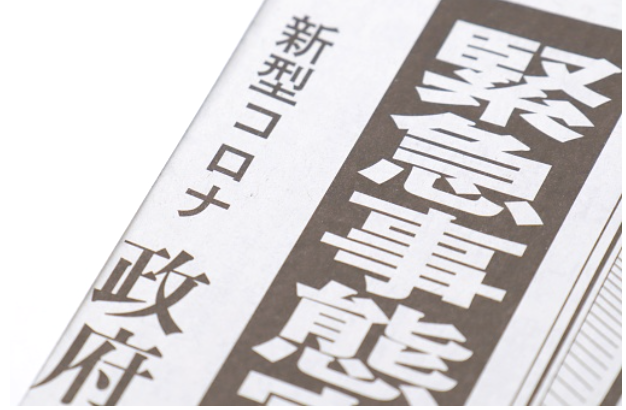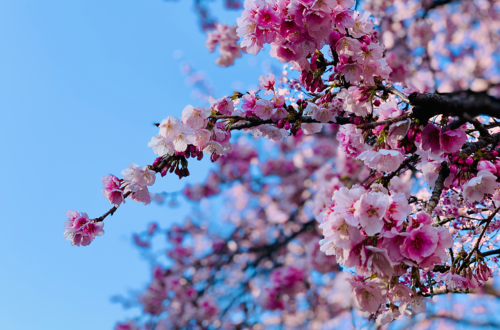
How is Covid-19 in Japan?
It’s all over the news again: Covid cases are rising, Omicron is making its round in Japanese cities and there are even resigned whispers of another State of Emergency. Who knows what these next few weeks will bring, but for now, there’s a lot of worry and confusion hanging in the air in Japan once more.
This comes after a few weeks of hope and a sense that things were finally returning back to normal: cases were down drastically, and the return of the GoTo Travel campaign from the New Year was also an exciting prospect for many, after nearly two years of limited traveling and restrictions.
As with most places in the world, this new wave is a devastating blow. But instead of bemoaning what could have been, this article will introduce what Japan’s general attitude towards Covid-19 is as of January 2022, and what the etiquettes (or ‘Corona Manner’) are.
First and foremost: Mask, Mask, Mask
Unlike some countries (cough, the U.K., cough) from the very start of the pandemic two fateful years ago, Japan was quick to implement masks into everyday life. Prior to the Covid-19 pandemic, masks had been quite commonplace: people usually wore masks if they were worried about catching a cold, or if they were feeling under the weather themselves, so as to non-verbally warn those around them of their current health.
Furthermore, many people in Japan also wore facemasks during hayfever season in the Spring, as means to stop inhaling pollen. And so, masks aren’t anything new or strange in Japan, so adopting them to prevent the spread of a new virus was one of the first actions the people took as a collective.
Manbo, aka Man-en Boushi
Another State of Emergency is unlikely (but don’t quote us on that!). Instead, Japan’s new policy rests more on ‘Man-en Boushi’ (‘Manbo’ for short) which translates to ‘Preventing spread of disease’.
At the discretion of the prefectural governor, the government requests restaurants to shorten business hours, not service alcohol and only allow parties of up to four people per table. With Manbo, business hours are shortened, but there is no need to take a leave of absence. This differs to the State of Emergency, when restaurants were conversely requested to take leave of absence as well as shorten business hours.
It’s also important to note that whilst the State of Emergency covers the entire prefecture, Manbo targets a specific area in the prefecture. Policies are thus becoming more local and hyper-focused – a trend that we have seen in other parts of the world too.
Fear but Carry On
As with most countries, the attitude towards the pandemic has drastically shifted over the last two years. At first, like with the rest of the world, Japan experienced fear and uncertainty which was perhaps exacerbated by the 2021 Olympics – the prospect of a global sports event in one city during the pandemic was a terrifying prospect, with some going as far to imagine the very worst. And yet, the the Olympics came and went and thankfully none of the apocalyptic prophecies came true.
Like with most countries in the world, there is a stronger sentiment of ‘Living with Covid’ (or, ‘With Corona’ in Japanese) present in the air, and people taking responsibility over their own actions rather than relying on government restrictions. This shift in attitude is perhaps why people in Japan are feeling more and more unconvinced by the Manbo policies, and great sympathy for the suffering hospitality sector.
Case numbers in Japan
Cases are rising across Japan at an increasingly worrying pace. The Omnicron variant is rampant, there is no doubt there. One thing that many people seem to point out, however, that no matter how bad the numbers are, compared to other countries, Japan’s number are on the low-end. I remember at one point, Japan’s daily Covid infection numbers were less than the U.K.’s daily Covid death toll.
Many people have cited Japan’s general cleanliness and lack of touching as the main reasons as to why the numbers are so low in Japan. One factor, however, that cannot be ignored is that testing is less accessible in Japan as it is in other countries. Furthermore, people who test positive on a PCR test are usually required to then go to hospital and stay there for two weeks with no contact with the outside world.
Knowing this, many people (especially workers) are unwilling to take an official PCR test, preferring instead to take a Lateral Flow and isolating at home. This, of course, skews the official Covid numbers, and so the infection numbers are very likely to be higher than the number published by the government.
Another thing to mention is that whilst in other parts of the world, it is common for people to have very frank and open conversations about Covid (“Oh, you’ve got Covid? Ah, that sucks. I had it two weeks ago, and it had me down for three days!”) between friends and even colleagues, in Japan, people are comparatively quite secretive about whether or not they’ve been infected. This is because Japanese people put great importance on not inconveniencing those around them, and talks of Covid is much more taboo than it is in the West.


You May Also Like
